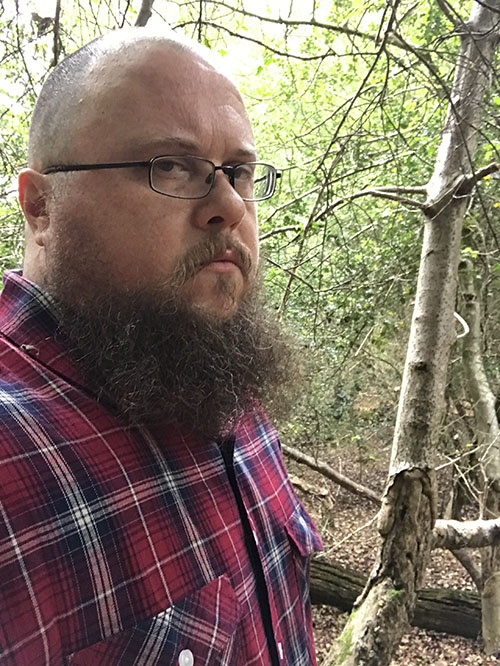Since forming Pentagram in 1971, Bobby Liebling has steered the cult doom pioneers through innumerable line-up changes, label hassles, missed opportunities and health traumas exacerbated by chronic drug addiction.
The 2011 documentary Last Days Here chronicled Liebling’s journey from the band’s lowest ebb, through his spiritual awakening, to sobriety and the triumphant relaunch of Pentagram, whose latest album, Curious Volume, is a classy, compelling blend of classic doom and good-time rock’n’roll.
How are you feeling today?
I’m still alive. I woke up this morning. That’s good enough.
On the new album your voice still has plenty of passion and attitude. How did you approach the vocals this time?
I went back to what I used to do, which is double-track. It’s hard. When they come out of sync you’ve gotta do ’em so many times or you end up with a Doppler effect, so I had to sing every song identically twice. To do that you need a good producer, and our engineer Mattias [Nilsson] did an incredible job with a lot of patience, because we’re a bunch of ego-maniacs. We’re all former abusers. Except our bass player Greg [Turley], thank God. So we got a lot of baggage with us.
You’re now sixty-one. How do you get your voice into shape for a recording?
I do a whole lot of nothing. And then some.
How did the recording compare to 2013’s Last Rites?
My only complaint about Last Rites is that I wish the sound had been drier and hotter, like Curious Volume. On Curious Volume we shove fire up your ass, you know what I mean? On Last Rites there were many more guitars, and they fade in and out. You hear them very well, but they’re more effect-oriented than they are You Really Got Me, y’know? If younger viewers don’t know who that is, that’s the original: The Ravens, who became The Kinks.
Ravens lead us neatly on to the album title. Isn’t that taken from a line in Edgar Allen Poe’s poem The Raven?
Yes it is: ‘Once upon a midnight dreary, while I pondered, weak and weary/Over many a quaint and curious volume of forgotten lore…’
Has Poe’s work always been a big inspiration for you?
No. As a matter of fact I don’t read shit unless it’s about me. I’m telling you, I’m the ultimate narcissistic monomaniac. I don’t read unless someone reads to me – and I won’t be read to. Believe it or not – I’ll get stick for saying this, I’m sure – I hate reading. I can’t stand it. And I used to hate anything to do with mathematics. But you’ve got to remember: music is all mathematics. Totally. I almost flunked out of math every year in junior high, and now I’m a math wizard.
There’s a good balance of light and shade on the album. Was it important to branch out from the darker vibes?
We released Misunderstood as a single. To me that’s all-the-way Ramones punk-type stuff. But the B-side, Walk Alone, is getting more airplay and kudos because a lot of people are saying of the A-side: “Oh, that doesn’t sound like Pentagram.” I’m like, fuck you, am I supposed to sound like that shit for ever? I had another idea, I’m so sorry my brain functions. I’m very apologetic that I had to write something that’s not the same as something I’ve done over and over!” As you can see, I’m a big sarcasm fan. But even though there are several downer songs on this new album, lyrically they end on an upswing. That’s not because of the God thing, it’s because it made sense, and the songs I wrote are about me. So they don’t end with ‘fuck it all’; there’s some hope.
There always seemed to be the possibility of salvation in Pentagram lyrics – there were always two sides to the story.
I really appreciate that. That’s very dear to my heart, because Pentagram has never been about black metal and Satan worship. That’s all bullshit. Our songs are warnings. You’ve got to review your choices, but be forewarned, cos it could be the day of reckoning and that’ll be relentless – you might end up in the sub-basement, if we don’t show ’em how.
How many songs did you write for the new album?
I only wrote one song myself, and co-wrote three.
Which did you write alone?
The first song, Lay Down And Die. I wrote that when the R&B invasion came to America. It was much more rough and tumble, not as polished, with crazy vocals and raunchy guitar. It reminds me of some old thing like the Music Machine, Paul Revere & The Raiders, the 13th Floor Elevators of course. We want hits, we want stuff that’s crossing commercial lines, because we have that opportunity finally. And if anyone says I sold out, I’ll kick ’em in the balls because, goddammit, I’ve been waiting fifty years – I don’t think that’s selling out.
When was that song written?
The song was written when I was eleven and a half, in 1965, so it’s traditionally and authentically that era.
Guitarist Victor Griffin left the band briefly between Last Rites and Curious Volume. What happened there?
I love Victor like flesh and blood – I’d die for him. Hell, he invented the drop-B tuning! But he’s had some very severe personal problems. That’s why he quit last time. He needs to sign an official contract about this ‘leaving now and then’ shit, and realise that there are people who depend on this band. You can’t do that kind of stuff if you’re gonna be in the big leagues. So now I’ll only play with Victor if the band goes to two guitar players. All the songs I’ve ever written, actually, were for two guitars. When Victor came back he said: “No triple sixes, no Baphomets.” I said okay and got rid of all of it – for him. And I feel like this is the thanks I get. We’re a band. That means you’re bound. And when you’re bound you’re more than one.
Is it good to be back on Peaceville, the UK label that did so much to relaunch Pentagram in the early nineties?
Yes. We were their first band that didn’t have Cookie Monster singing and ninety miles an hour on the bass drums. We signed around the same time as Paradise Lost and Autopsy. That takes me back. Those guys gave a lot of kudos to us, which I appreciate dearly. They don’t sound anything like us, but we must have just planted some idea in the head.
When did you first want to be a singer?
I never wanted to be a singer. I wanted more than anything to be a lead player. I still do, but I don’t think the audience would want me looking down at a guitar all night. When my first band, Shades Of Darkness, got together, a couple of us started playing the guitar, and after three or four lessons I was having more trouble with the playing, and they said: “You’ve got a great voice. You can be the singer.” And I was like, oh please!
With the film Last Days Here, did you ever worry about revealing so much of yourself to the world?
Not at all. I am what I am. I’m nuts sometimes. I saw that movie ten times. Without European distribution it won forty-five awards. It feels surreal to me, like: “What’s wrong with this picture?” y’know? I’m just a dope fiend crackhead being Beavis And Butt-head with my band.
Will Pentagram be touring the new album?
I don’t like playing live any more. I’d really love to retire, but I still definitely want to be in the studio recording the next album, the next song. I just came up with a thing where I’m doing a single – it’s three very talented people doing a cover of a very obscure band called Paris, who featured Bob Welch of Fleetwood Mac, Glenn Cornick of Jethro Tull and Thom Mooney of Nazz. The song’s called Black Books, and it’s going to be done by myself, Wino and Dave Grohl.


